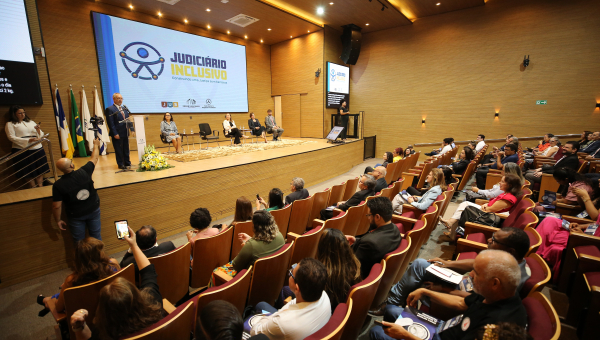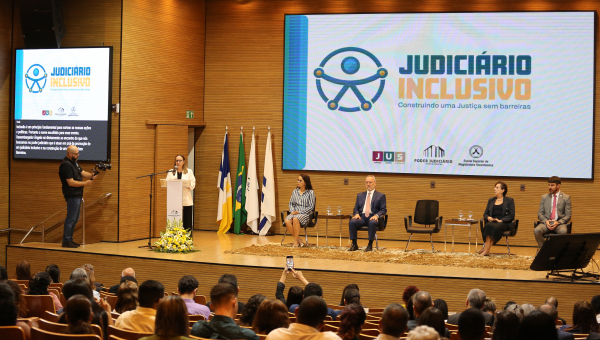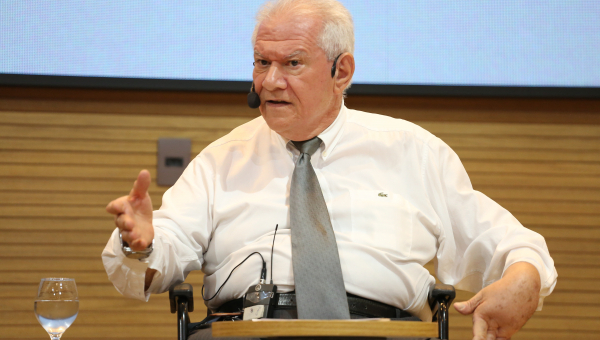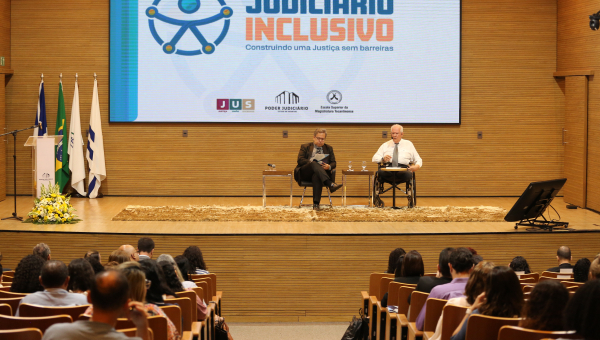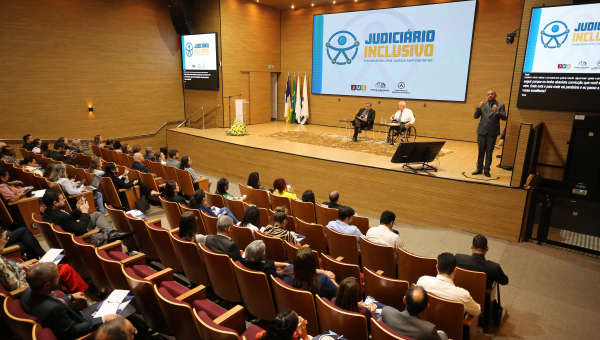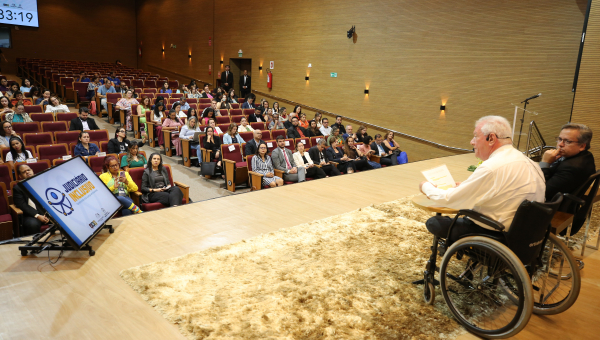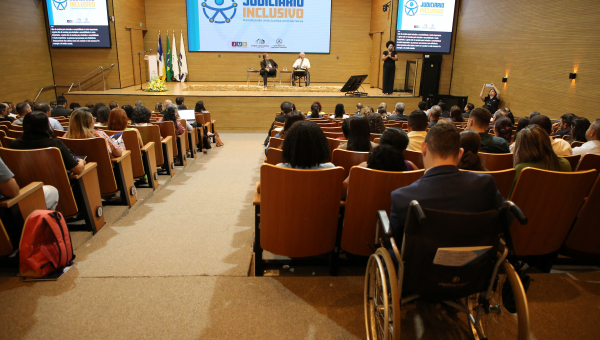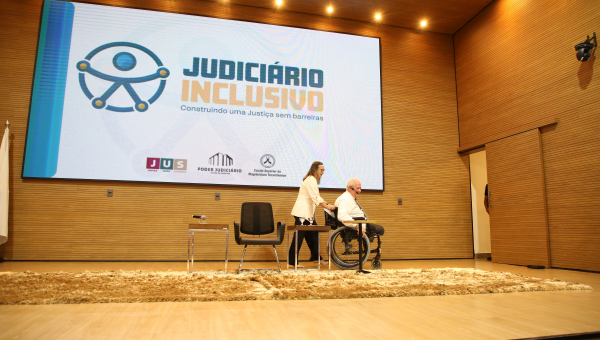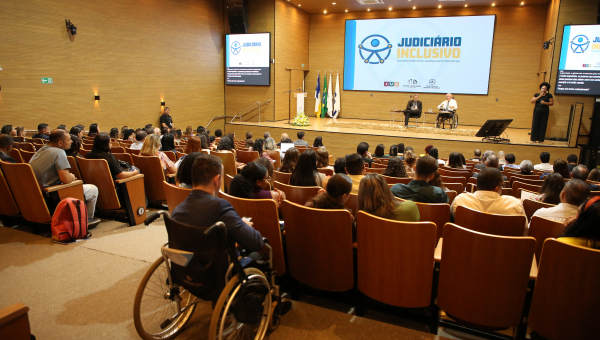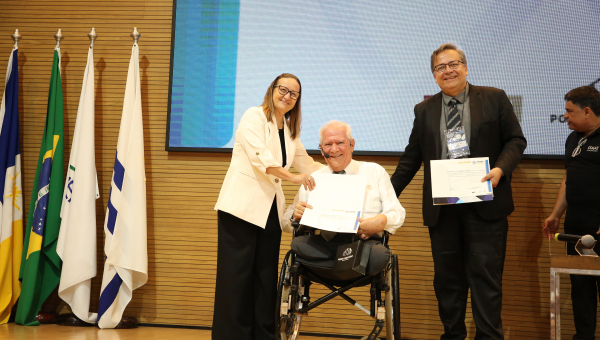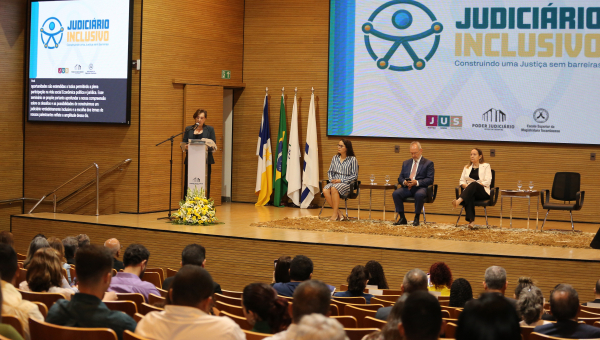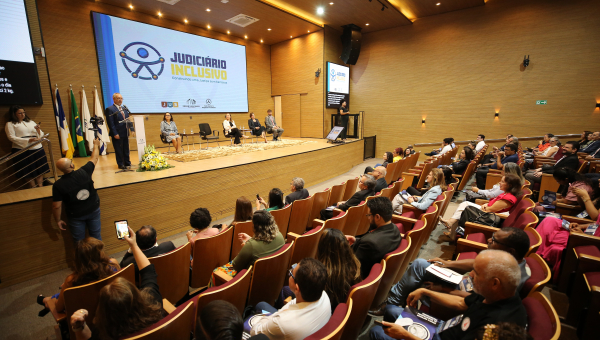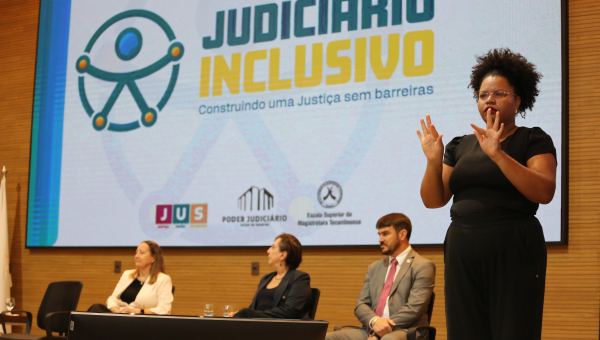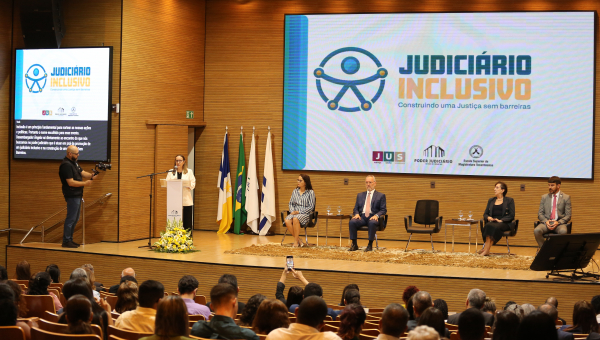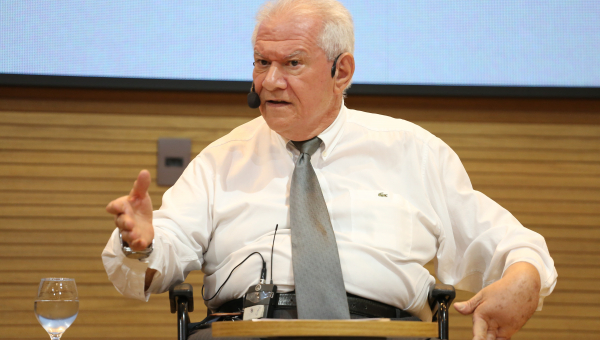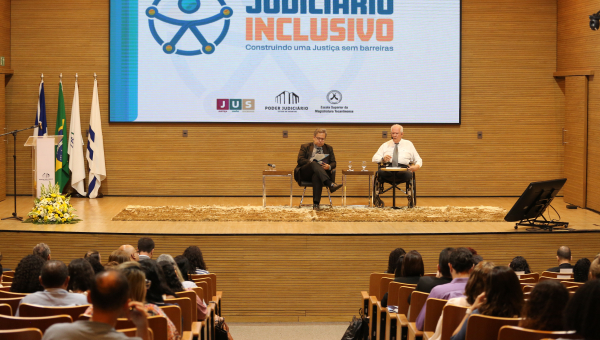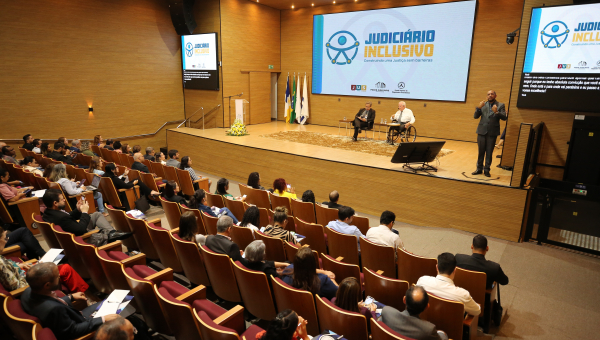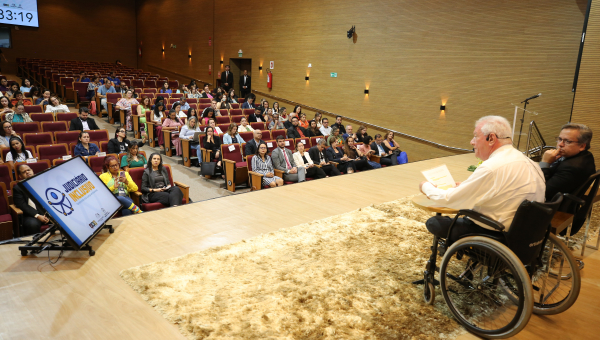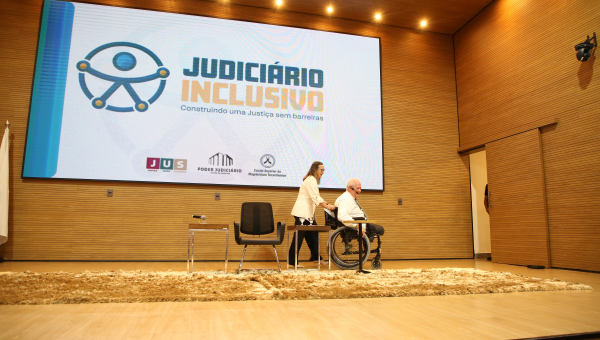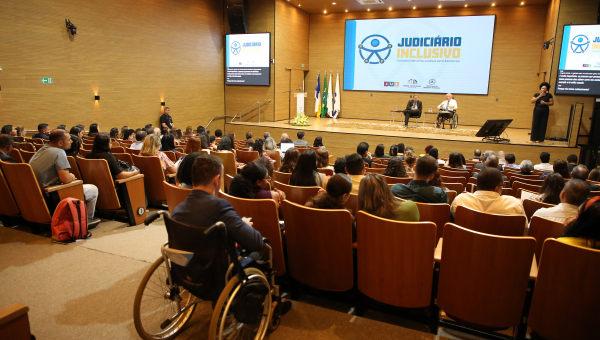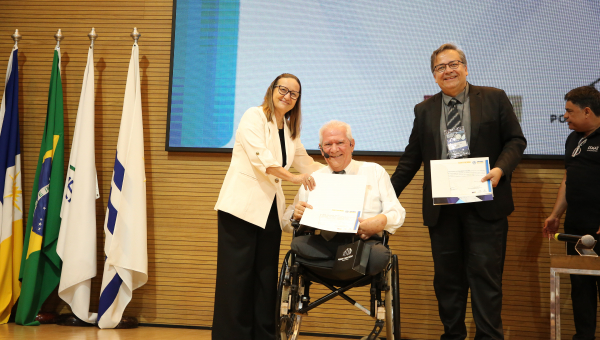
“Accessibility is an important institutional value, because it aims to facilitate the access of citizens to Justice, promoting inclusion and the participation of all, regardless of their conditions,” said the president of the Court of Justice of the State of Tocantins (TJTO), Justice Maysa Vendramini Rosal, when she opened the Inclusive Judiciary: building Justice without barriers, on Thursday morning (May 15th).
More than discussing physical or legal accessibility, the event, which takes place throughout the day in the auditorium of the TJTO, is an invitation to the public to rethink behavior, listen with the heart and transform structures inside and outside the Judiciary.
During the opening ceremony, the president of the TJTO stressed that Justice must be accessible to all. "Inclusion is a principle that needs to guide our actions and public policies. That's why this event has a name that translates exactly what we're looking for: a more inclusive Judiciary, which works to eliminate barriers and promote full citizenship," she said.
Also present at the event, the chief of Justice, Judge Pedro Nelson de Miranda Coutinho, stressed the importance of respectful coexistence and shared responsibility in promoting inclusion. “This fight is not just for people with disabilities and the Court, it's ours,” he said.
Inclusion as an ethical principle
For the president of the CPAI, Justice Angela Haonat, inclusion goes beyond compliance with the law: it is an ethical and social imperative. "A fair society is one in which barriers of any kind have no place. The Judiciary has a central role as the guardian of the Constitution, and it is our duty to ensure that Justice reaches everyone, without exception," she said.
 The programming of the meeting included lectures, dialogues and reflections with experts, judges, civil servers and representatives of civil society. The aim was to create a space for active listening, mutual learning and the collective construction of solutions to make the justice system more empathetic and accessible.
The programming of the meeting included lectures, dialogues and reflections with experts, judges, civil servers and representatives of civil society. The aim was to create a space for active listening, mutual learning and the collective construction of solutions to make the justice system more empathetic and accessible.
The action is promoted by the Judiciary of the state of Tocantins, through the Permanent Commission for Accessibility and Inclusion (CPAI), in partnership with the Superior School of the Judges of the State of Tocantins (Esmat).
Accessibility that welcomes and transforms
The opening lecture: “Attitudinal Accessibility: Reality or Ideal?” was given by retired judge, wheelchair user and member of the CPAI, Adhemar Chúfalo Filho, with mediation by Arióstenis Guimarães Vieira, assistant judge to the Presidency of the TJTO.
With a sensitive and provocative approach, the speaker led participants to reflect on invisible barriers and the role of attitudes in promoting inclusion.
There's no point in talking about accessibility if there's no respect, empathy and appreciation of oneself and others. Attitudinal accessibility begins within us, when we recognize our value and extend that recognition to others.
According to the speaker, inclusion doesn't just depend on infrastructure, but mainly on behavior.
He recalled that the Brazilian Inclusion Law (Law No. 13.146/2015) already recognizes attitudinal accessibility as one of the fundamental dimensions of inclusion, treating it as overcoming prejudiced attitudes, stigmas and stereotypes that hinder the social participation of people with disabilities.
On the occasion, the speaker talked about ableism as a form of exclusion and about attitudinal accessibility, referring to the perception of others without prejudice, stigma, stereotypes and discrimination.
For the speaker, in this sense, it is necessary to raise awareness so that awareness can be put into practice. He also spoke about the importance of inclusive language and welcome.
"A lot of attitudinal accessibility depends on our reflections, on stopping for three minutes a day and asking ourselves: what did I do today? How was my day today? Did I do the right thing? What can I do to improve?"
The retired judge concluded his lecture with a reflection: “Know yourself so that we can have attitudinal accessibility for all people, regardless of the conditions in which they find themselves.”




